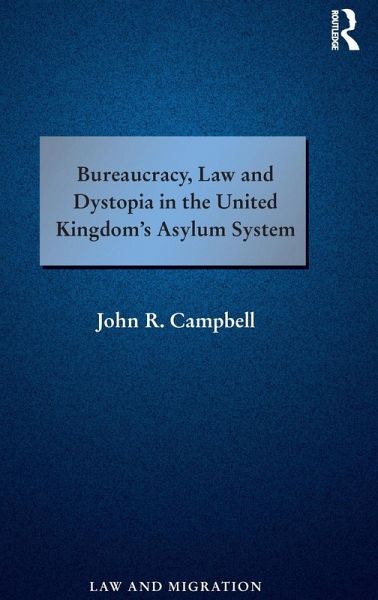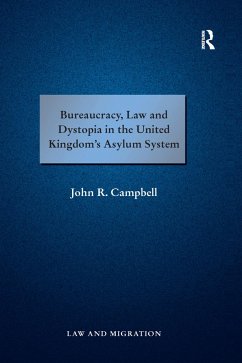
Bureaucracy, Law and Dystopia in the United Kingdom's Asylum System
Versandkostenfrei!
Versandfertig in 1-2 Wochen
180,99 €
inkl. MwSt.
Weitere Ausgaben:

PAYBACK Punkte
90 °P sammeln!
The central concern of this book is to find answers to fundamental questions about the British asylum system and how it operates. Based on ethnographic research over a two year period, the work follows and analyses numerous asylum appeals through the British courts. It draws on myriad interviews with individuals and thorough examination of many state and non-state organizations to understand how the system works. Providing an in-depth study of a national asylum system and of immigration law and practice, the book will be an invaluable resource for academics, researchers and policy-makers in th...
The central concern of this book is to find answers to fundamental questions about the British asylum system and how it operates. Based on ethnographic research over a two year period, the work follows and analyses numerous asylum appeals through the British courts. It draws on myriad interviews with individuals and thorough examination of many state and non-state organizations to understand how the system works. Providing an in-depth study of a national asylum system and of immigration law and practice, the book will be an invaluable resource for academics, researchers and policy-makers in the UK and beyond working in this highly topical area.














